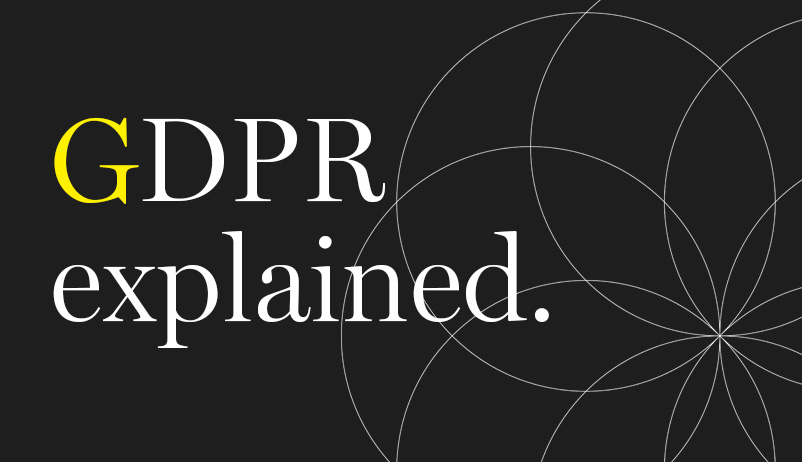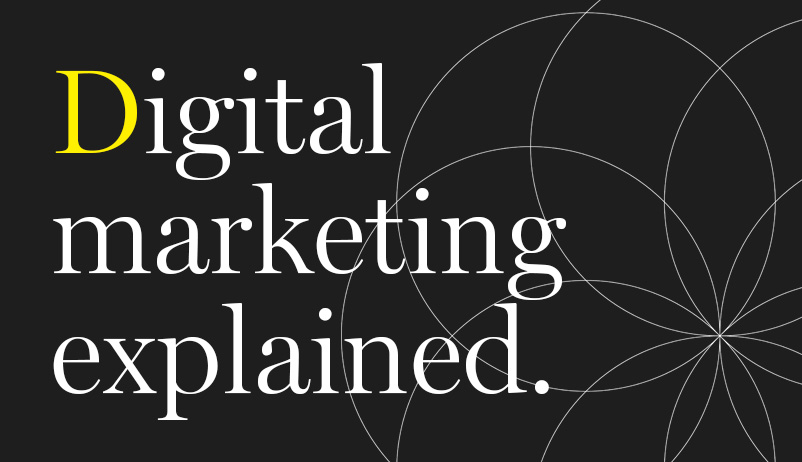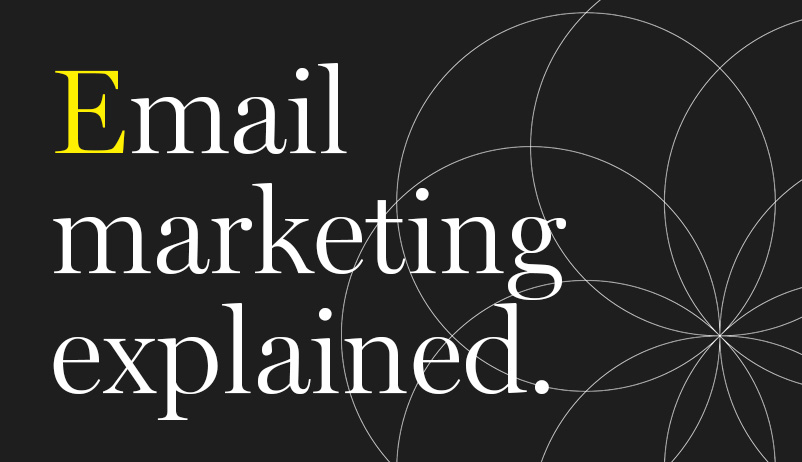
Lorem ipsum dolor sit amet, consectetur adipiscing elit. Suspendisse varius enim in eros elementum tristique. Duis cursus, mi quis viverra ornare, eros dolor interdum nulla, ut commodo diam libero vitae erat. Aenean faucibus nibh et justo cursus id rutrum lorem imperdiet. Nunc ut sem vitae risus tristique posuere.
What Does GDPR Mean in Marketing?
In marketing, GDPR stands for General Data Protection Regulation. It is a regulation set by the European Union that came into effect on May 25, 2018. The GDPR replaced the Data Protection Directive from 1995 and was designed to harmonise data privacy laws across Europe, give more control to EU citizens over their personal data and establish new regulations for how companies must handle data privacy.
GDPR applies to any business that collects or processes personal data of EU citizens, regardless of whether the business is based in the EU or not. This means that even if a company is based outside the EU, but processes personal data of EU citizens, they still need to comply with GDPR regulations.
What Are the Key Components of GDPR?
The key components of GDPR (General Data Protection Regulation) include:
- Scope and Applicability: GDPR applies to the processing of personal data of individuals located in the European Union (EU), regardless of the location of the data controller or processor.
- Lawful Basis for Processing: Businesses must have a lawful basis for processing personal data, such as obtaining consent, fulfilling a contract, complying with legal obligations, protecting vital interests, performing a task carried out in the public interest, or legitimate interests.
- Consent: Consent must be freely given, specific, informed, and unambiguous. It must be obtained before collecting and processing personal data, and individuals have the right to withdraw their consent at any time.
- Rights of Individuals: GDPR grants individuals several rights, including the right to be informed, right of access, right to rectification, right to erasure ("right to be forgotten"), right to restrict processing, right to data portability, and right to object to processing.
- Data Breach Notification: Businesses must promptly notify relevant authorities and affected individuals in case of a data breach that is likely to result in a risk to the rights and freedoms of individuals.
- Data Protection Impact Assessments (DPIAs): DPIAs must be conducted for high-risk processing activities, such as systematic and extensive profiling, large-scale processing of sensitive data, or monitoring of public areas.
- Data Protection Officer (DPO): Some businesses may be required to appoint a DPO, who is responsible for monitoring compliance with GDPR, advising on data protection matters, and serving as a point of contact for individuals and authorities.
- Data Transfers: Transfers of personal data outside the EU are subject to specific requirements, such as adequacy decisions, standard contractual clauses, binding corporate rules, or other appropriate safeguards.
- Accountability and Record-Keeping: Businesses must demonstrate compliance with GDPR through documentation, record-keeping, and accountability measures, such as maintaining records of processing activities, documenting data protection policies and procedures, and conducting regular audits.
- Privacy by Design and Default: Privacy considerations must be incorporated into the design and operation of systems, processes, and products that involve the processing of personal data.
- Fines and Penalties: GDPR provides for substantial fines for non-compliance, including fines of up to 4% of annual global turnover or €20 million (whichever is higher) for serious violations, and fines of up to 2% of annual global turnover or €10 million (whichever is higher) for less severe violations.

"Most marketers see GDPR as a restrictive force. However, this EU regulation harmonises data privacy laws, empowers individuals, and sets strict rules for handling personal data. Compliance offers benefits like trust and security, while breaches can result in fines, legal liabilities, reputation damage, and business disruptions. Every business needs to pay close attention to GDPR and optimise operations around it."
Paul Mills
Founder, VCMO
Advantages for Businesses to Comply with GDPR.
By adhering to the GDPR regulations, businesses (and consumers) within the EU trade area can enjoy these benefits:
- Enhanced Customer Trust and Loyalty: GDPR compliance demonstrates a commitment to protecting individuals' privacy and rights, which can enhance customer trust and loyalty. Businesses that handle personal data responsibly are more likely to attract and retain customers who value privacy and data protection.
- Improved Data Security: GDPR requires businesses to implement appropriate technical and organisational measures to protect personal data, reducing the risk of data breaches and unauthorised access to sensitive information. This can help businesses avoid costly data breaches and associated damages, such as financial loss and reputational damage.
- Streamlined Data Processing Practices: GDPR promotes transparency and accountability in data processing practices, requiring businesses to document their data processing activities and maintain records of data processing activities. This can lead to more streamlined and efficient data processing practices within businesses.
- Harmonised Data Protection Standards: GDPR provides a unified framework for data protection across all EU member states, simplifying compliance for businesses operating in multiple EU countries. This can result in consistent data protection practices and reduce compliance complexities.
- Increased Data-Driven Innovation: GDPR encourages businesses to adopt privacy-by-design and privacy-by-default principles, which promote responsible data handling and foster innovation in data-driven technologies and services. This can lead to the development of innovative and privacy-conscious products and services that are aligned with GDPR requirements.
- Global Impact: GDPR has a global impact as it applies to businesses outside the EU that process personal data of EU individuals. This means that businesses around the world need to comply with GDPR if they handle personal data of EU residents, leading to a global improvement in data protection practices.
- Competitive Advantage: GDPR compliance can provide a competitive advantage for businesses, especially in markets where privacy and data protection are highly valued by customers. Compliance with GDPR can position a business as a trusted and responsible steward of personal data, giving it a competitive edge over non-compliant competitors.
- Avoidance of Hefty Fines and Penalties: GDPR imposes significant fines for non-compliance, including fines of up to 4% of annual global turnover or €20 million (whichever is higher) for serious violations. Compliance with GDPR helps businesses avoid potential financial penalties and reputational damage associated with non-compliance.
- Improved Business Relationships: GDPR compliance can enhance trust and confidence among business partners, clients, and stakeholders by demonstrating responsible data handling practices. This can lead to improved business relationships and collaborations.
- Ethical and Responsible Data Handling: GDPR promotes ethical and responsible data handling practices, aligning businesses with higher standards of privacy and data protection. Compliance with GDPR can help businesses establish a positive corporate image as responsible and trustworthy entities that prioritize the privacy and rights of individuals.
How Does a Business Suffer if it’s in Breach of GDPR?
If a business is found to be in breach of GDPR, it may suffer various consequences:
Financial Penalties
GDPR grants regulatory authorities the power to impose significant fines for non-compliance, which can be up to 4% of the company's annual global turnover or €20 million (whichever is higher) for serious violations. These fines can result in substantial financial losses for the business, impacting its profitability and financial stability.
Legal Liabilities
Businesses that breach GDPR may face legal liabilities, including lawsuits, class actions, and claims for damages from data subjects, regulatory authorities, or other stakeholders. These legal liabilities can result in additional financial costs, reputational damage, and potential court-ordered remedies, such as compensation payments or corrective actions.
Reputational Damage
Breaching GDPR can result in reputational damage for the business. News of a data breach or non-compliance with data protection laws can quickly spread through media, social networks, and other channels, leading to loss of customer trust, negative brand perception, and customer churn. Reputational damage can have long-term consequences for the business, impacting its market position, customer relationships, and future business opportunities.
Business Disruptions
Dealing with the aftermath of a GDPR breach, including investigations, audits, remedial actions, and legal proceedings, can disrupt normal business operations. This can result in business interruptions, loss of productivity, and diversion of resources to address compliance issues, which can impact the business's ability to operate efficiently and effectively.
Loss of Business Opportunities
Non-compliance with GDPR may result in limitations or restrictions on the business's ability to process personal data, such as restrictions on data transfers to third countries or limitations on marketing activities. This can impact the business's ability to engage in certain business opportunities, such as international expansion, partnerships, or contracts that require compliance with data protection laws.
Regulatory Sanctions
Regulatory authorities may impose additional sanctions, such as orders to cease certain data processing activities, periodic data protection audits, or ongoing monitoring requirements, as part of the enforcement measures for GDPR non-compliance. These sanctions can result in increased regulatory scrutiny, ongoing compliance costs, and reputational repercussions.
Loss of Customer Trust and Loyalty
Customers value their privacy and data protection, and a breach of GDPR can erode customer trust and loyalty. This can lead to loss of customers, decreased customer retention, and negative word-of-mouth, which can impact the business's customer base, revenue, and long-term sustainability.
It's important to note that the consequences of GDPR breach can vary depending on the nature and severity of the breach, the size and industry of the business, and the response and remediation efforts taken by the business after the breach.
However, the potential negative impacts of GDPR non-compliance highlight the importance of businesses taking proactive steps to ensure compliance with data protection laws to avoid potential financial, legal, reputational, and operational risks.
Recap on GDPR.
In summary, GDPR is an important regulation that sets new standards for data privacy and protection. It provides individuals with more control over their personal data and encourages businesses to have better data management practices. While GDPR compliance can be costly and limit marketing opportunities, it is necessary for companies to comply with the regulations to avoid potential fines and protect the privacy of EU citizens' personal data.
Further information on GDPR:
To access the official Regulation (EU) 2016/679 (General Data Protection Regulation) visit https://gdpr-info.eu/
To access the Guide to the UK GDPR visit https://ico.org.uk/for-organisations/guide-to-data-protection/guide-to-the-general-data-protection-regulation-gdpr/
About VCMO
VCMO is a UK-based provider of fractional marketing services, supporting B2B SMEs—ranging from funded scale-ups to mid-tier and private equity-backed businesses—through key moments of growth and transformation. Its Chartered Fractional CMOs and SOSTAC® certified planners embed strategic marketing leadership into organisations navigating product launches, new market entry, acquisitions, and leadership gaps.
Ready to take your marketing to the next level? Let us help you get there.
Subscribe to Our Newsletter
Fractional Edge is our montly newsletter sharing expert opinion on the latest trends in fractional leadership, curated marketing content from leading sources, VCMO events, and much more. Subscribing is quick — just add your name and email.








